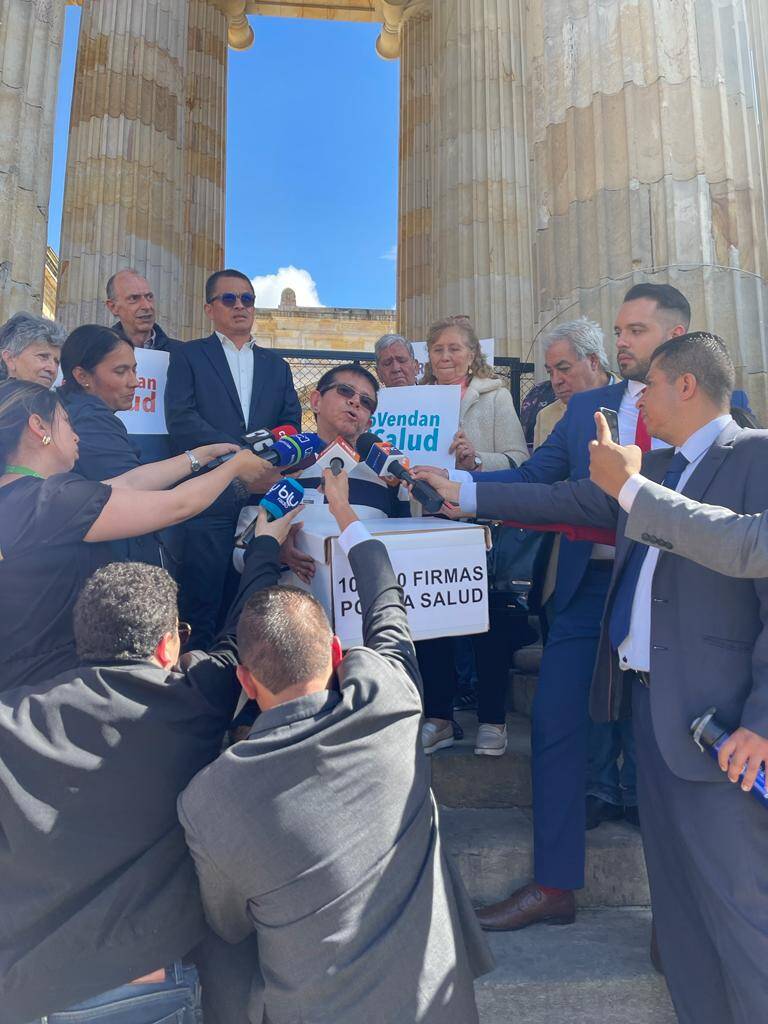Patients question the health reform bill: "We demand a reform that provides real solutions."

Pacientes Colombia, an organization representing 200 patient organizations across the country, rejected this week the government's health reform proposal submitted to the Senate's Seventh Committee for its third debate.
This initiative, according to the organization, "lacks real structural solutions and fails to address the urgent needs of the system or those of patients. It is, in essence, a reiteration of the bill approved in the second reading by the plenary session of the House of Representatives, while also ignoring the technical information submitted to the committees held by this legislative branch over a period of four months."

The Senate's Seventh Committee was responsible for killing the previous reform bill. Photo: El Tiempo
The group emphasized that the proposal lacks fiscal or budgetary support, without which it is unfeasible to undertake a structural reform. "Even so, the government insists that current resources are sufficient and that no further investments are required. However, it already manages 60% of the system with deficient results in portfolio management, guaranteeing rights, and expanding the service network," they added.
Additionally, according to the organization, the new text proposes a model that further fragments care by distributing responsibility for health service provision among multiple actors without clear coordination between them, which ultimately creates greater barriers for patients.
"With its plan to eliminate the EPSs, the government has not made it clear who will assume the role of coordinating body of the health system, which is a cause for concern, as it gives the impression that it is delegating governance without a clear direction. This lack of clarity also leaves a gap in how the efficient and transparent use of resources will be guaranteed," they said in a statement.

The healthcare system is currently experiencing a serious funding crisis. Photo: Ronny Suárez - EL TIEMPO
Likewise, patients said, the reform omits concrete actions to close the gaps in access to health services between urban and rural Colombia, where many remote areas already face precarious conditions without guarantees of adequate care.
“With regard to human talent, no concrete actions are contemplated for its strengthening. Currently, the country faces a shortage of more than 50,000 professionals in the sector, and without clear measures for their training, hiring, and formalization, it will be impossible to meet the needs of the system and effectively guarantee the right to health,” they emphasized.
For the movement, which represents the majority of patients in the country, although the new text mentions a preventive and predictive model, it lacks effective measures to care for the more than 16 million Colombians already living with various health conditions. At the same time, they argue, the government's text increases the number of preventable diseases, such as sexually transmitted infections, without any clear prevention campaigns.
“There are deaths that could have been avoided, but the government has failed to fulfill its duty. This appears to be an exacerbated crisis, even one created by a government, to justify the approval of a reform that neither resolves the structural problems of the health system nor responds to the seriousness of the current situation. It is a proposal marked by headlines but with few effective results,” said Denis Silva, spokesperson for Pacientes Colombia.

Denis Silva, spokesperson for Pacientes Colombia. Photo: Private Archive
For Pacientes Colombia, the government's decisions are leading to a "scenario of chaos" in which patients continue to be the primary victims of a system that fails to guarantee the fundamental right to health and life.
“ At Pacientes Colombia, we reiterate that the country needs reform, but one that effectively expands the right to health, eliminates social and territorial gaps, provides new sources of financing, guarantees greater state stewardship, formalizes healthcare talent, and strengthens a real preventive and predictive model. We urgently call for this reform not to be a political imposition, but rather a collective endeavor that puts patients first, listens to their voices, and concretely addresses the structural needs of the healthcare system,” concluded Denis Silva.
Environment and Health Journalist
eltiempo





